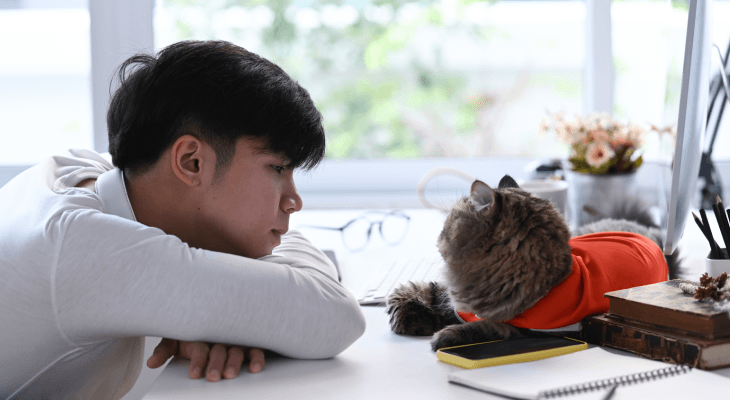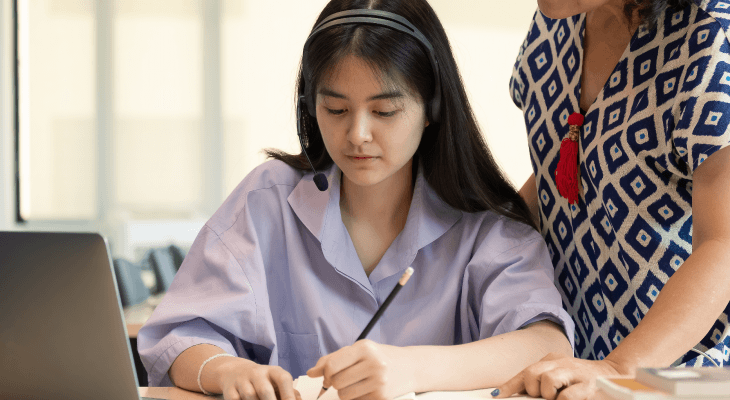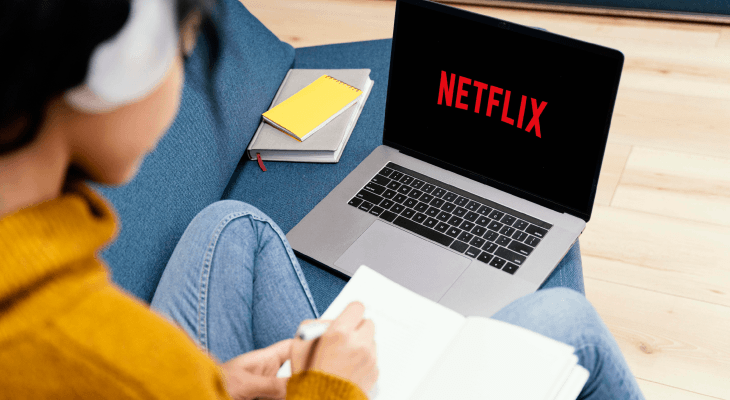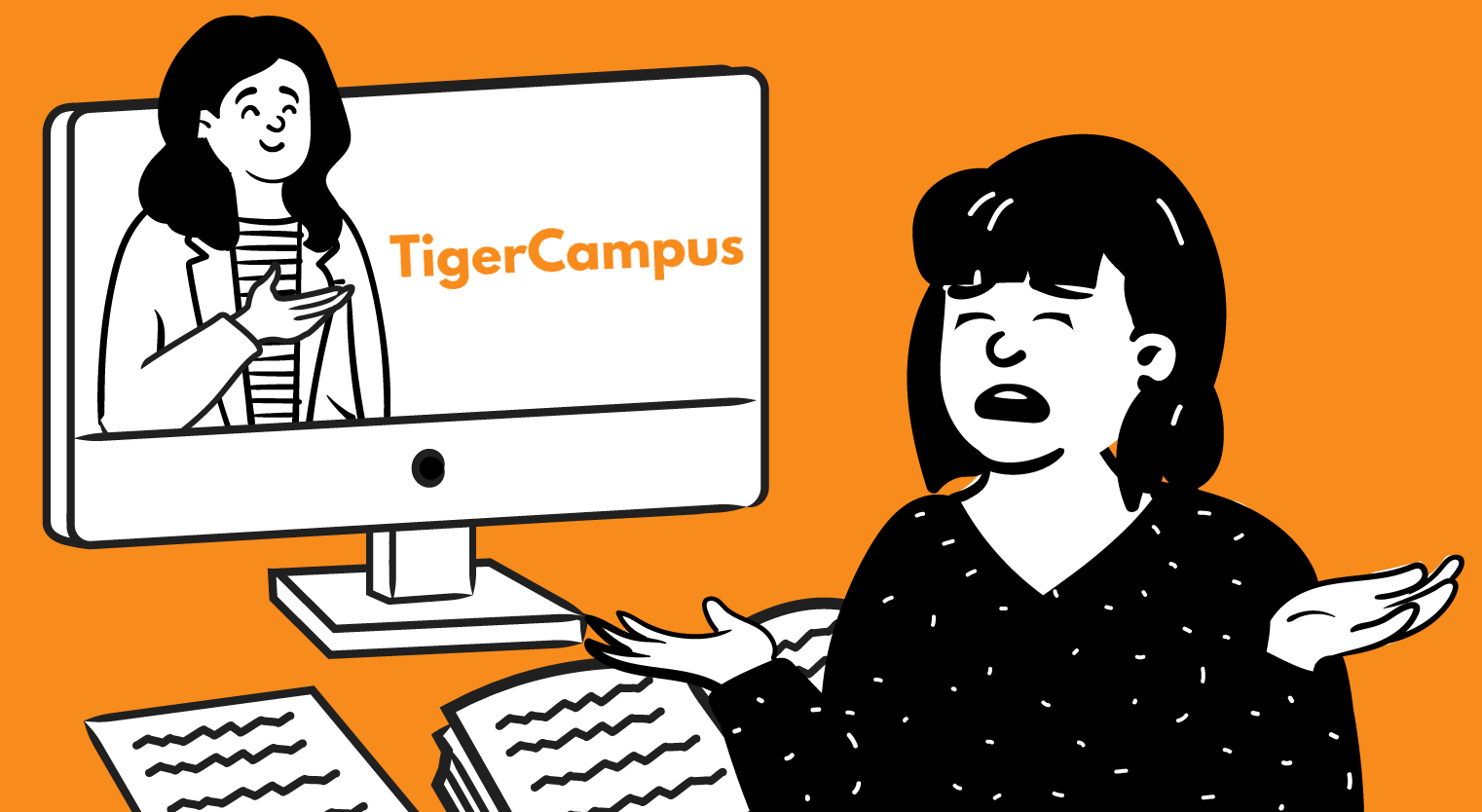Are You Easily Distracted? 5 Types of Study Distractions and How To Escape Them
Finding it difficult to study and stay focused? We prepared 5 different study distractions and a guide to help you escape them.
Published 23 Jul 2021

Whether you’re at home or in the quiet confines of the library, there’s no shortage of distractions when it comes to studying. You may think that a quick reply to a friend’s text will do no harm but it can actually set you back. In fact, research says that it can take an average of 20 minutes to get back to an earlier level of concentration after an interruption.
But with a solid plan, a couple of tricks and an intentional focus, you can overcome those distractions and take control of your day. Here are a few types of distractions that you’re definitely a victim of and how you can overcome them.
#1. Familiar environments

The most classic type of distraction are the ones that are based right at home. What’s the harm of a quick nap in between your study sessions, right? Plus, if you’re feeling bored peckish, there’s always a fully stocked pantry and fridge to keep you occupied.
While home is the most convenient place to study, it may not be conducive to learning — think small spaces, no separate area for study and crowded with family members.
What you can do:
Avoid studying in your bedroom or in any place that you associate with sleep as it’s easy for you to feel drowsy. Plus, sitting in bed for long periods of time can be harmful to your body and mind. Not only will it affect your posture and spine but studies have shown that slouching or lying down while studying can affect your sleep quality and working memory. It might be tempting to get comfortable while studying, but it won’t help you stay awake.
You can also dedicate an area at home where you can study. Let everyone in your home know that when you are in this dedicated area, they should not disturb you. Otherwise, you can always create a makeshift study station in your room that has sufficient lighting. Having an area where you can associate with studying and school work will help you focus better.
#2. The temptations of the internet

It’s no news that social media such as Twitter, Instagram and Facebook has become the latest tool for news updates, education, social activity and networking. But in reality, they can sometimes be black holes that suck away your time without realising. Your 10-minute break on TikTok can easily be a 2 hour session of endless scrolling while a couple of videos on YouTube can end up throwing you into a rabbit hole.
What you can do:
Your phone is the ultimate distraction. During study time, put your phone on sleep mode to divert any notifications from coming in. If you want to break the habit of constantly checking your phone every minute, consider placing the phone far away from you or have someone hold onto it for you until you’re done studying.
But what about those moments when you’re sneakily accessing sites on your laptop? Well, it’s important to be disciplined about conquering these digital distractions. Close unnecessary tabs that are unrelated to your studies or use software like Cold Turkey and StayFocused that will block websites for a productive study session.
#3. Interruptions from friends and family

Your social circle is a huge part of your college life. Not only do they provide you with emotional support, but they’re also there for when you need to escape college woes. However, friends and family can be a huge distraction when you need to be studying.
Add on e-learning at home and you’ve got a recipe for disaster. With your mom pestering you to help with chores and your siblings quarreling in the next room, escaping from this is almost impossible.
What you can do:
The first thing you need to do is set boundaries with your friends and family and inform them of your study schedule. With friends, let them know when you’re on ‘do not disturb’ mode as well as when you’re free again. It’s important to set an available time so that you can catch up with your friends afterwards to avoid coming off rude and dismissive.
As for your family, explain to them the importance of you focusing on your lessons and that they should try to keep their volume down. Putting up “signs” may also help in establishing your studying hours. For instance, a closed door and agreed-upon “class hours” can signal that you’re busy and unavailable.
Apply for university with EduAdvisor
Secure scholarships and more when you apply to any of our 100+ partner universities.
Start now#4. Hobbies and other guilty pleasures

You’re in the mood to study but suddenly, you remember the book you’ve put off reading and now you want to get back to it. Or perhaps you have an unexpected burst of energy to start cleaning your room or whipping up an elaborate meal for yourself — well, just because.
Hobbies, and sometimes constructive hobbies, can be a distraction from studying. Chances are you don’t feel guilty because you’re putting your time to good use when in reality, you’re wasting your time rather than learning the necessary materials for your tests. In essence, you’re justifying your procrastination because you think you’re doing something worthwhile.
How to Escape:
While going back to your hobbies and other guilty pleasures is healthy, it's difficult to get back on study mode once you’ve used up all your energy. To keep your hobbies from becoming distractions, start planning ahead. Look at what you need to accomplish for your studies and schedule your hobbies around them.
It’s also important that you set time blocks for your hobbies and study schedule. This helps in creating a sense of urgency to get things done on time as well as preventing you from procrastinating further. This means only doing a 20-minute workout routine or setting yourself to read only 10 pages of a novel before studying. Your hobbies will still be there whether or not you study, but you won’t be too happy with your grades if you’re not disciplined with it.

#5. Movies and TV shows

There’s no harm in playing your favourite reruns on Netflix while you’re studying. After all, having background noise offers many cognitive benefits when it comes to productivity and creativity. However the problem lies when you get too distracted with what you’re watching rather than focusing on your studies.
You may think that catching up on a couple of episodes to rest your brain in between study periods is healthy, but next thing you know, you’re on season 7 of Friends and your assignment is nowhere near done.
What you can do:
If you’re the type of person that needs white noise to focus, playing tv shows in the background is fine. However, the show that you choose cannot be too sophisticated that requires your brain to pay so much attention. Opt for feel-good sitcoms that are light but enough to keep your mind on alert.
While some of us can multitask like a pro, others might get too distracted and ditch study altogether. If you’re the latter but find silence too deafening, try playing music (with minimal to no lyrics) in the background that can help you focus. Studies suggest that playing music while studying can help you relax and improve concentration.
Finding the right study skills and the perfect study routine takes some trial and error. These tricks may not be a one-size-fit all considering that everyone has different environments and distractions but knowing what works for you will allow you to achieve your academic goals with little to no stress.






